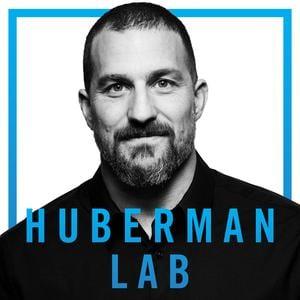
In this episode of the “Huberman Lab” podcast, Dr. Andrew Huberman welcomes Dr. Oded Rechavi to discuss the fascinating topic of genes and the inheritance of memories across generations. They delve into the concept of genetic inheritance, the role of the epigenome, and how experiences can modify genes that are passed down. The conversation also touches on the importance of electrolytes for optimal cell function and introduces Element, a science-backed electrolyte drink. Dr. Rechavi’s lab explores controversial questions that have significant implications for our lives, making this episode both informative and thought-provoking.
Genetic inheritance involves the transmission of genes from parents, while the epigenome encompasses the ways in which our environment and experiences can modify our genome and genes. This understanding highlights the significant role that our genes and patterns of inheritance play in shaping our lives and identities. Moreover, memories can be passed down through generations in various organisms, including humans, emphasizing the impact of experiences on our genetic makeup.
Electrolytes, such as salt, magnesium, and potassium, are essential for optimal cell function, particularly in nerve cells. Even slight imbalances in electrolyte concentrations or dehydration can lead to cognitive and physical performance deficits. Element, a science-backed electrolyte drink, provides the ideal ratio of sodium, potassium, and magnesium for hydration and replenishment, supporting overall cell health.
The concept of Lamarckian evolution, which suggests the inheritance of acquired traits, has been discredited. Lamarck’s belief in the use and disuse of organs as a basis for inheritance was controversial and contradicted by Darwin’s theory of natural selection. While attempts to prove the inheritance of acquired traits have been rare and controversial, it is crucial to carefully frame and clarify terms such as epigenetics and transgenerational epigenetics to avoid confusion.
Epigenetics refers to changes in gene expression caused by modifications to the genome, such as DNA methylation and protein modifications. RNA molecules play a pivotal role in transmitting epigenetic information across generations. These modifications can cause differences in gene expression between identical twins and be influenced by the parent of origin. While some epigenetic changes are largely erased between generations, certain modifications persist, potentially impacting the expression of specific traits.
Model organisms, such as worms like C. elegans, offer valuable insights into human health and biology due to shared functions and genes. The well-mapped connectome of worms allows researchers to study their neural networks and behaviors, shedding light on memory mechanisms, stress responses, and the inheritance of acquired traits. Additionally, emerging model organisms like planaria are expanding our understanding of biology and providing new avenues for research.
This episode of the “Huberman Lab” podcast with Dr. Oded Rechavi delves into the fascinating world of genetic inheritance, the epigenome, and the transmission of memories across generations. Dr. Rechavi’s research and insights shed light on the complex interplay between genes, experiences, and our understanding of inheritance. Additionally, the discussion highlights the importance of electrolytes for optimal cell function and introduces Element, a science-backed electrolyte drink. Listeners are encouraged to explore the extensive resources provided by the Huberman Lab, including the podcast, social media platforms, and the neural network newsletter.